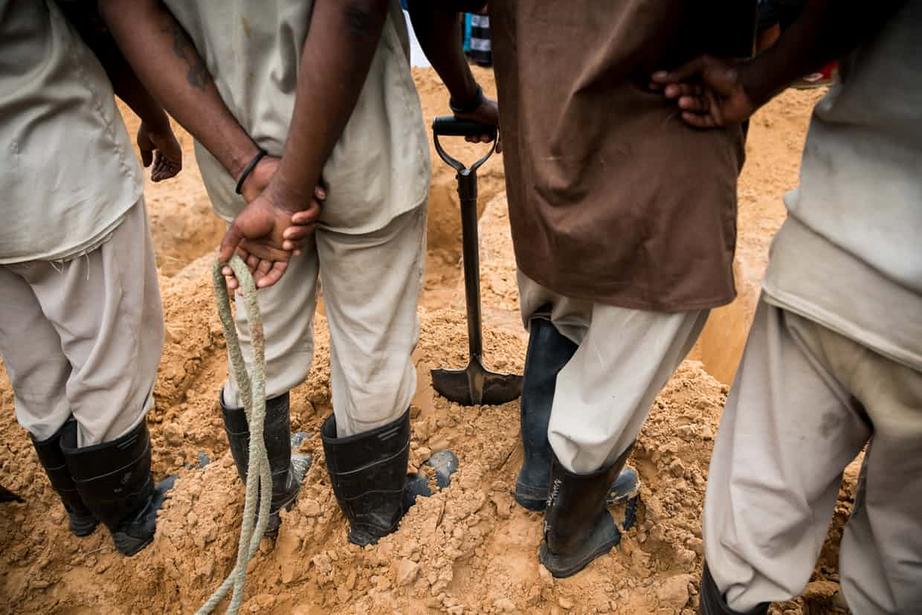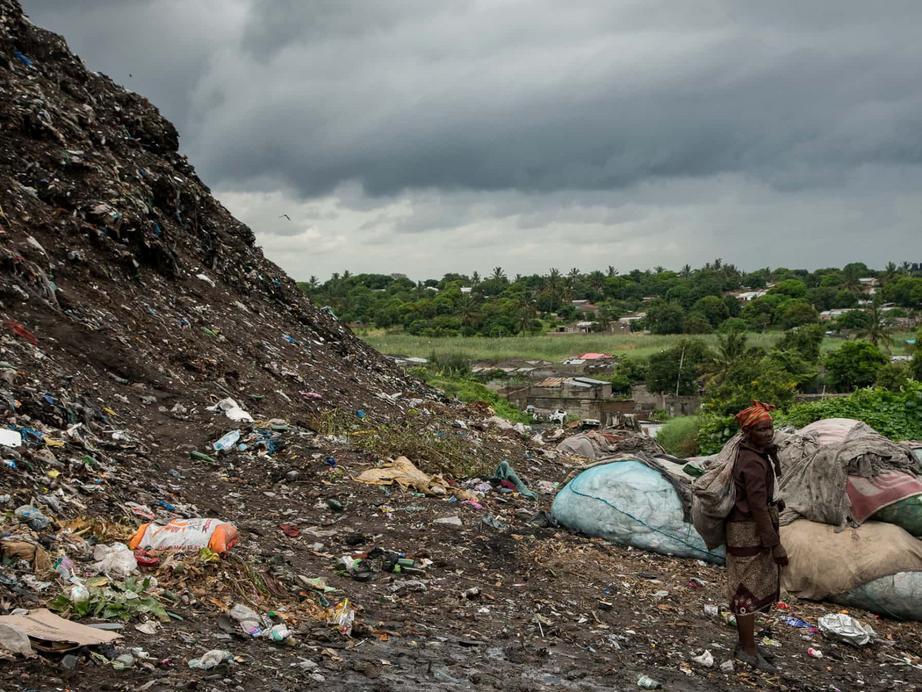Living and dying on a rubbish dump: the landfill collapse in Mozambique
Sixteen people died last week when heavy rains triggered a landslide in Maputo’s dump, leading to calls for the mayor’s resignation, and exposing the grim realities of life in one of the poorest parts of the city
Last Monday at 3am, rain pummelled Mozambique’s capital. The country has a notorious wet season and in recent weeks many residents had complained of the high rainfall.
In Hulene, an impoverished neighbourhood 10km from the city centre, lies the Hulene dump: a 17-hectare (42-acre) mountain of rubbish that towers 15 metres above the people who have made their homes on its fringes.
“It was late and the rain was pouring down, but I was woken up by something that sounded like an explosion,” says Paulina Cosa, a resident of the settlement.
The overnight downpour set off an avalanche of rubbish that consumed more than 10 houses on its periphery, killing 16 people and wounding six others. A mother and her newborn baby were among the casualties.
“We came out and heard some people screaming, we didn’t know what was happening,” says Maria Jose, who lives less than 100 metres from the collapse. “When we went to investigate we found that the waste had come down to the houses and a lot of people were among it, trying to dig it up and rescue their families.”
“A lot of people came out to help,” says Joao Mucavele, the city’s director of health and cemeteries. “People from the municipality, from all over the neighbourhood and from the Red Cross, gave a helping hand.”
Recovery operations have now stopped and, three days after the collapse, earth-moving equipment pushes back the mounds of rubbish to reclaim the 100 or so metres of land that was swallowed up by the detritus.
“We are now working to return the waste to where it came from,” says Mucavele. “The people who were living here will be given help, but no one can live here from now on.”
In the interim, Mucavele says, all residents at the site of the collapse have been relocated to a temporary shelter in the Ferroviario neighbourhood, about 30 minutes south of the dump.

The funeral of eight of the victims of the landslide, who were buried at Santa Isabel cemetery, 45 minutes north of Maputo. Photograph: Shaun Swingler
Hulene rubbish dump is an assault on the senses. The smell of two decades of a city’s waste lingers long after you’ve left the site, and the vast pools of stagnant water mean the air is thick with mosquitoes. The swampy roads in and out are difficult to navigate.
But the dump provides its residents with a source of income in one of the most impoverished areas of the city, in a country where almost half of the population lives below the poverty line.
Peri-urban waste picking is a common livelihood across the continent, where people remain tied to informal economies and receive little social or economic protection.
Cosa, who has lived at the dump since 1994, makes her living collecting recyclable items. She says she sells them to Chinese recycling buyers and earns around 6p a day.
- We can’t stay here any more, it’s too difficult to handle this situation
- Maria Jose, Hulene resident
A lack of adequate housing to meet the high demand in Maputo, the country’s economic hub, has also driven people to set up homes around the dump. The Hulene neighbourhood underwent a population boom during the Mozambican civil war from 1977 to 1992. People fleeing the war in rural areas further north came to seek refuge in urban centres like Maputo.
“The collapse speaks to issues of poverty and urban planning,” Matthew Cochrane, a Red Cross spokesman, told CNN. “Those affected are the poorest of the poor. They have no choice but to live there, and when there’s heavy rain, they’re the ones who find themselves on the front line.”
Maria Jose’s house was not damaged in the landslide, so she has not yet been relocated. She was born in Hulene dump and has lived there most of her life. Since the collapse, she has decided to move away as the risk is too great for her and her one-year-old child.
“The conditions are terrible with the diseases, the mosquitoes, and now this,” she says. “We can’t stay here any more, it’s too difficult to handle this situation.”
A local environmental activism group, Livaningo, has been campaigning for 15 years for the closure of the dump because they say it is operating far above its capacity, creating dangerous living conditions.
“What happened on Monday we’ve been telling the government would happen for years,” says Manuel Cardoso, an activist at Livaningo. “We don’t think they see solving this problem that’s been around since 2001 as a priority. They have to be held responsible for their inaction.”
In 2013, after pressure from numerous groups, the city government agreed to close the Hulene rubbish dump and relocate it to Matlemele, in the neighbouring city of Matola. However, the relocation never happened. The city blamed budget constraints.
Since the collapse at Hulene, the city has re-energised its efforts to relocate the dump. However, Mucavele says a number of people are illegally occupying the Matlemele site, halting progress. According to Mucavele it will cost $16m (£11.4m) to relocate these people, and an additional $15m to relocate Hulene dump.
He says there has been a plan and fiscal timeline implemented for this relocation but was unable to answer how long the relocation will take.
In the interim, local government has agreed to cover the victim’s funeral costs.
At a state-sponsored funeral on Thursday, eight victims were buried at Santa Isabel cemetery, 45 minutes north of Maputo. There were about 500 people in attendance, and it rained intermittently throughout the service. Funeral goers sheltered under umbrellas and a gazebo, both from the rain and from the harsh sun that intermittently peaked through the clouds.
In attendance was the governor of Maputo City, Iolanda Cintura. In her speech she apologised for the tragedy: “The people of Maputo are in mourning. On behalf of the government, in my own name we apologise to the Uamusse, Ngovene, Thousene, Mondlane and Bendene families for what happened. We expect everybody to help all these families to recover their hope.”
In response to the loss of life, opposition parties have been quick to condemn the government.
In a press conference on Wednesday, Augusto Mbazo, the deputy head of the Democratic Movement of Mozambique, called for the resignation of David Simango, Maputo’s mayor, suggesting he “no longer has the moral right to remain mayor”. One of Simango’s main promises during his 2013 re-election campaign was to close down Hulene dump.
“What we are looking for now is how we can help these families find justice,” says Cardoso, an environmental activist. “Where is the responsibility of the government?”

